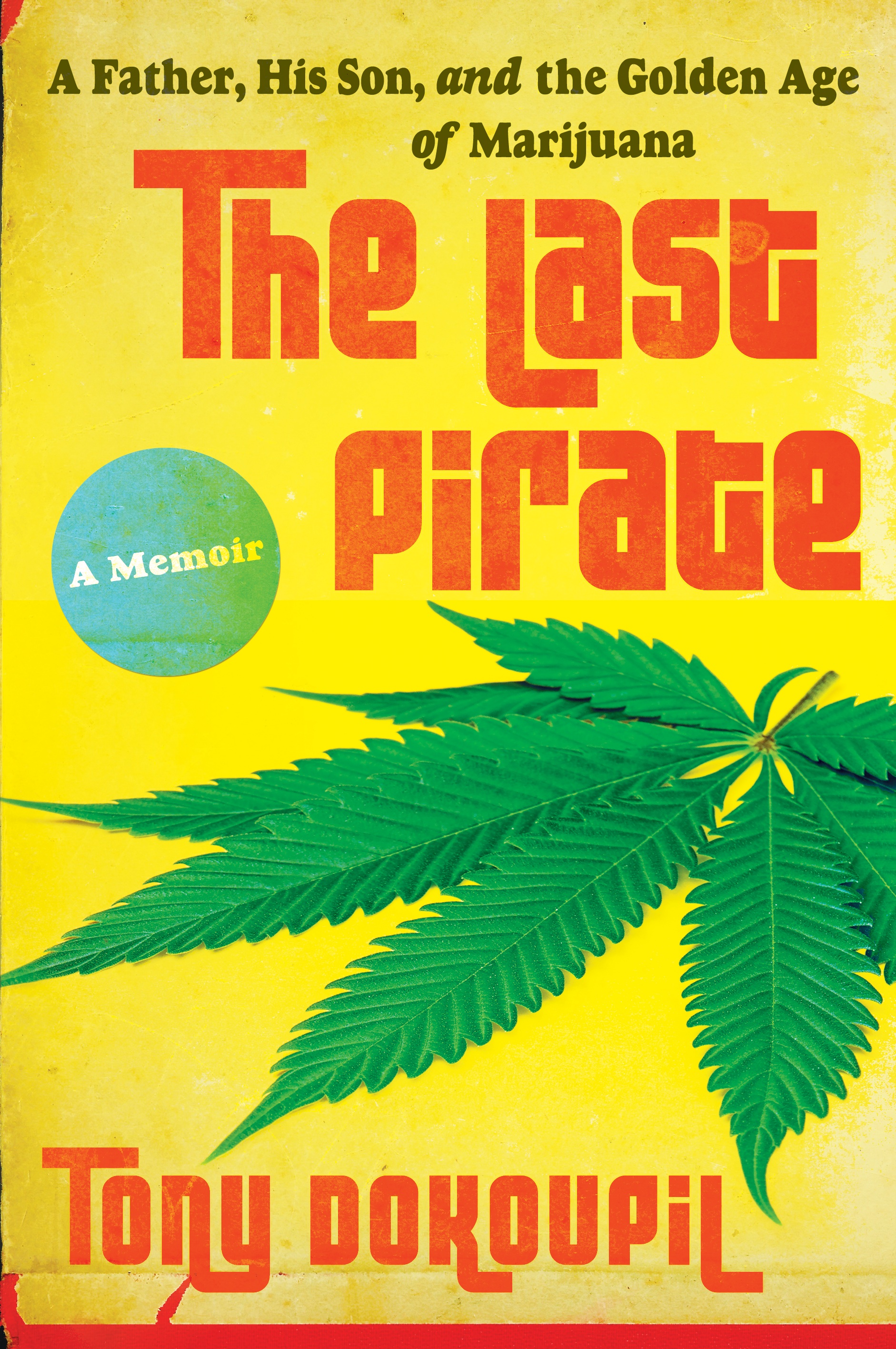
In The Last Pirate author Tony Dokoupil writes about growing up with a father who was part of the largest pot ring of the Reagan era. The “Old Man” as his father was called, graduated to transporting ten and twenty thousand pounds of marijuana up and down the East coast right around the time he decided to have kids.
Naturally, Dokoupil’s early childhood wasn’t exactly ordinary. It was a hedonistic life of beach resorts, yachts and private schools paid for with drug money–a million of it stored in coolers and buried in backyards around the country. The Old Man, who became a kind of “Wolf of Miami” drug baron, eventually gets caught and the business of pot turns into a far more technical and far less glamorous enterprise.
The younger Dokoupil, now in his thirties with two children of his own, mines his father’s memories and his own to produce a funny, beautifully written and sometimes unsettling personal narrative that is entwined with the story of marijuana’s dramatic ascent in the United States over the last three decades. Because this book is hitting shelves in the middle of a national debate about pot laws, Dokoupil says he’s asked constantly what he thinks about legalization. He answers those questions here and talks about what he’ll tell his kids about their grandfather when they are older.
Your father and his friends see themselves as heroes—”the Rosa Parks of legalization.” Do you feel the same way?
Not at all. I don’t think marijuana smokers should face criminal charges. I think the number of arrests for pot possession in this country could fall from 750,000 a year to zero and there’d be no great harm to public health. But while I’ve got no beef with smokers, I don’t think we need to set the dealers free—and I certainly don’t think we should create a wide-open Coca-Cola-style free market for pot. That does strike me as a public health concern and for the very same reasons we already consider sugar, fat and salt to be a public health concern. Very big businesses have a way of using people’s freedoms against them.
In other words, you agree with war on drugs?
No. Look, I keep a New York Times clipping from 1982, a reminder of how ridiculous the war on drugs really got. It’s a news brief that says, a small scale pot smugglers boat ‘eluded two coast guard cutters, a Navy destroyer, and four jet fighters for 27 hours.’ Jet fighters! It’s crazy. Absolutely crazy. But the only alternative isn’t big business. So, yeah, it’s funny. My father went to jail for dealing weed and, to my surprise, I would keep him there.
If the marijuana smugglers of yore were pirates, how do their now-legal descendants see themselves in Colorado and Washington?
That’s a work in progress but one thing is certain: today’s pot barons are a hell of lot less interesting than the old timers. In general I think this country is suffers a criminal awe-deficit. It’s all hackers and leakers, who are massively influential and sometimes heroic, but rarely romantic and almost never sexy. I think this awe-deficit is greatest in the weed business, where yachtsmen and beach bums like my father have been replaced by botanists and above board business types. It’s a snore.
What’s the biggest difference between old pot and the new stuff?
The new stuff is stronger, of course, but that’s not all. It’s also gorgeous and explicitly commercial, a perfectly shaped chandelier of THC and electric sunshine. The old stuff was never less gnarly and shaggy and unpredictably weird than nature itself. Every item on the High Times Top 40 list from 1977, for example, looks like a piece of animal scat or something scraped off a lawnmower on a wet morning.
Do you think legalization as we’ve seen it so far will go national?
For a while, yes, but I expect a backlash eventually. It’s inevitable. Marijuana’s mostly left-leaning backers don’t usually support a genetically modified commercial product that’s getting play on the cover of Fortune and the Wall Street Journal weekend section. They do for now, but they won’t forever. It’s a delicate support, I think. A lot of people who vote for legal weed are really voting against the status quo, against prohibition. They don’t want a third major vice industry.
When did you turn against pot legalization?
I don’t know that I have. If legal marijuana stays small and out of sight, fine. But I started worrying about the big business part of this when I had kids of my own. My son is 5. He loves the kind of dance hits that are in all the kid’s movies these days. Ok, fine. But when we started watching the music videos online, what’s the 30-second ad we have to sit through? Beer. And the next morning when we open up the computer again—it’s all banner ads for beer. The internet wants my kid to drink. I want him to learn to read first.
Will you tell your kids about their grandfather?
Yes, eventually. I talked with my father about this the other day. He said, ‘Can’t you tell them that I imported tropical plants if they ever ask?’ Yes, Dad, I said. Tropical plants it is.
More Must-Reads from TIME
- Why Trump’s Message Worked on Latino Men
- What Trump’s Win Could Mean for Housing
- The 100 Must-Read Books of 2024
- Sleep Doctors Share the 1 Tip That’s Changed Their Lives
- Column: Let’s Bring Back Romance
- What It’s Like to Have Long COVID As a Kid
- FX’s Say Nothing Is the Must-Watch Political Thriller of 2024
- Merle Bombardieri Is Helping People Make the Baby Decision
Contact us at letters@time.com